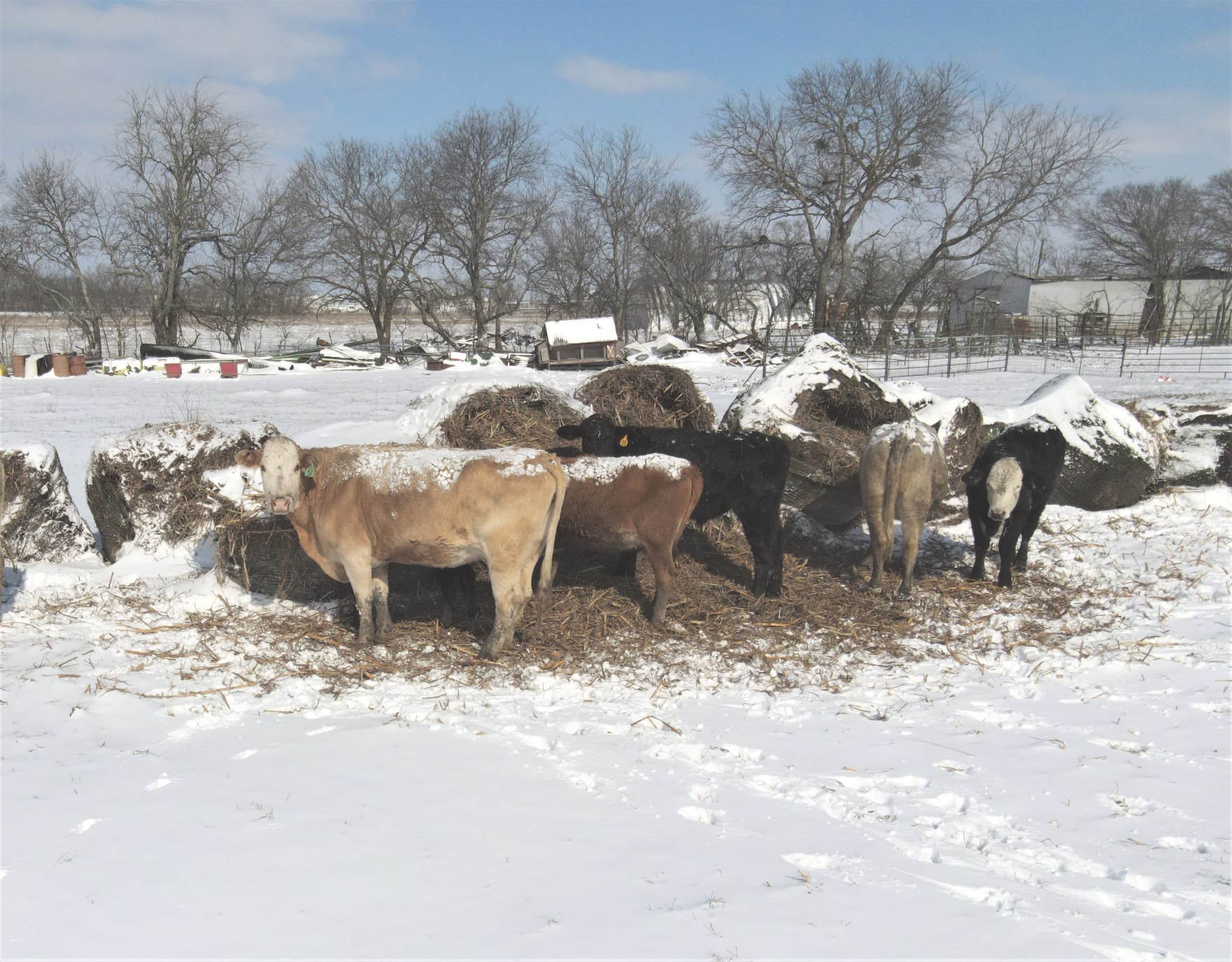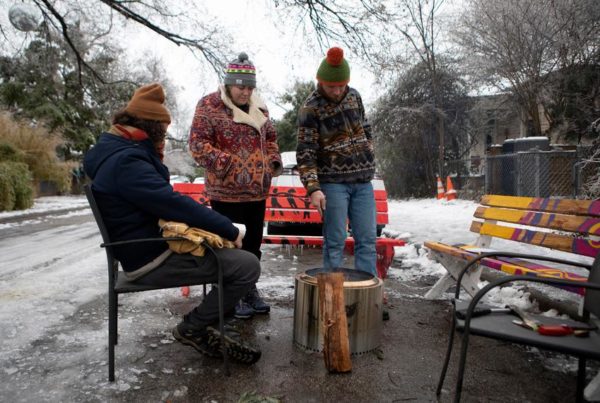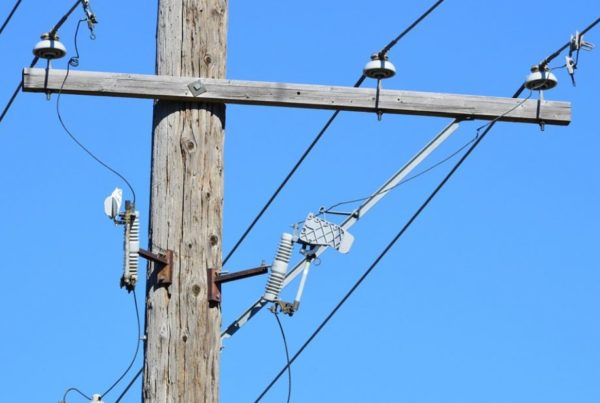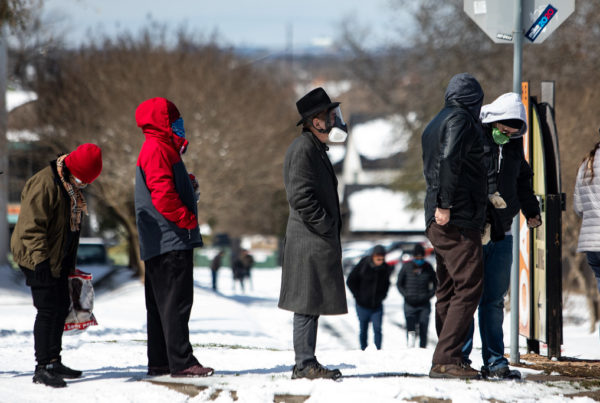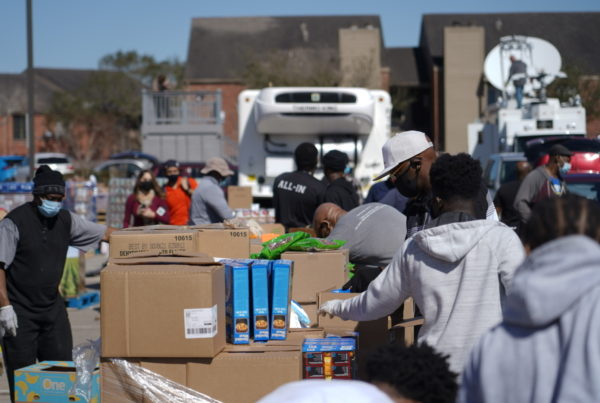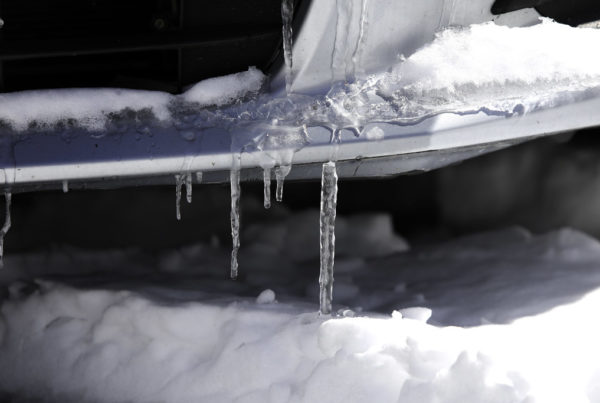Heather and John Paul Dineen said they did everything they could to prepare their farm for the winter storm and extreme cold temperatures that have wreaked havoc on Texas this week.
The Waxahachie couple — fulltime farmers — stocked up on food, water and extra hay for their cattle. They made sure their equipment was in working condition and they winterized their property, draining water from outside hoses and covering exposed faucets and pipes.
But even that wasn’t quite enough.
“The extent of how cold and the bitterness was a little bit unexpected, but what really threw us a big curveball was the lack of electricity,” John Paul Dineen III said. He’s a first-generation farmer who’s been in the business 30 years. He and his wife oversee a 700-acre operation they call The Yellow Farmhouse.
Dineen added they’re lucky their power has been rolling on and off, unlike others who’ve lost power and water for extended periods. Still, rolling power outages aren’t helping keep the farm running.
“Those things really throw a kink in things because you have heat lamps trying to keep pipes warm, heaters trying to keep equipment warm,” he said. “When you don’t have consistent electricity, then you can’t have that stuff where you can start it up and it’s really been an awakening for us.”
The couple grows wheat and corn and sometimes raises pigs in addition to cattle.
For the past seven days, temperatures have been below freezing. It’s so cold, the fuel in their equipment gelled, which kept their tractors from turning on.
“This is unprecedented. We just don’t get this kind of weather this time of year. It’s almost springtime for us,” he said.
Fortunately, the Dineens said they haven’t lost any cattle to the frigid temps. Friends have calves who lost their ears to frostbite and one friend lost 10% of his newborn calves.
“We weren’t expecting calves quite this early, but we’ve got a couple of [heifers] that are looking like they’re very close to delivering,” said Heather Dineen. “We’re watching them very carefully to see if they’re going to need any help or if they’re going to accept the babies.”
Earlier this week, Texas Agriculture Commissioner Sid Miller warned Texans about the statewide impact the storm would have on agriculture and the food supply chain.
Miller said he fielded calls from farmers and ranchers who reported major power interruptions.
“In just one example, dairy operations are dumping $8 million worth of milk down the drains every day because the plants that process that milk don’t have power,” Miller said in a news release. “Grocery stores are already unable to get shipments of dairy products. Store shelves are already empty. We’re looking at food supply chain problem like we’ve never seen before, even with Covid-19.”
John Paul Dineen, who has served on various agriculture boards, said it’s too early to tell just how widespread and severe the impact will be. He expects it could be a couple of weeks before anyone has a better idea.
Even producers in northern states, who typically are better equipped for severe winter weather, have been hit. Store shelves are empty because trucks haven’t been able to move on icy roads. Plus, widespread electric and gas outages have affected plants that produce meat or pasteurize milk.

Faith and Bill Ellis own and operate an 80-acre farm outside New Boston in far northeast Texas.
Three hours northeast of Waxahachie in New Boston, Faith Ellis and her husband, Bill, have been busy checking on their 80-acres of land, 25 head of cattle, chickens and rabbits.
“My husband [grew] up on this farm. He says he has never ever, ever seen the amount of snow we have gotten for these past few days,” Ellis said.
The couple’s Long Walk Spring Farm has been in the Ellis family for over150 years. In addition to livestock, they grow mustard greens, collard greens, cabbage, carrots and kale.
Their biggest concern right now is making sure the calves born during the ice storm survived.
“We’ve been trying to get out to find them,” Faith Ellis said. “They’re in the lower fields, so we can count how many new babies we have and to check on those babies.”
Farmers like Ellis and the Dineens say cattle are hardened for this weather if they’ve been properly fed. Food fuels their stomach and that plus their coat helps them retain heat.
“A lot of times the cattle try to stay around the watering places, but being deep in the forest, you’ve got all of that coverage, which blocks wind, blocks the snow for the most part and so they go deeper in,” Ellis said.
But calves are wet when born, so it’s up to the momma cows to keep them warm, she said.
To get around, Ellis said, they’ve used their tractor as a snow plow. If cows are hiding in a wooded area though, the couple has to go on foot to check on them. She said she’s seen snowdrifts as deep as 2 feet in some areas.
Checking on animals and crops is nearly a round-the-clock job, Ellis said.
“When we finally come in, right when the sun goes down, we’re exhausted,” she said. “We’ve been out two to three times during the day, trudging through two feet of snow trying to make sure that produce and animals are taken care, so that when all this thaws out, we can get the produce and the animals we have to the market.”
Got a tip? Email Stella M. Chávez at schavez@kera.org. You can follow Stella on Twitter @stellamchavez.


